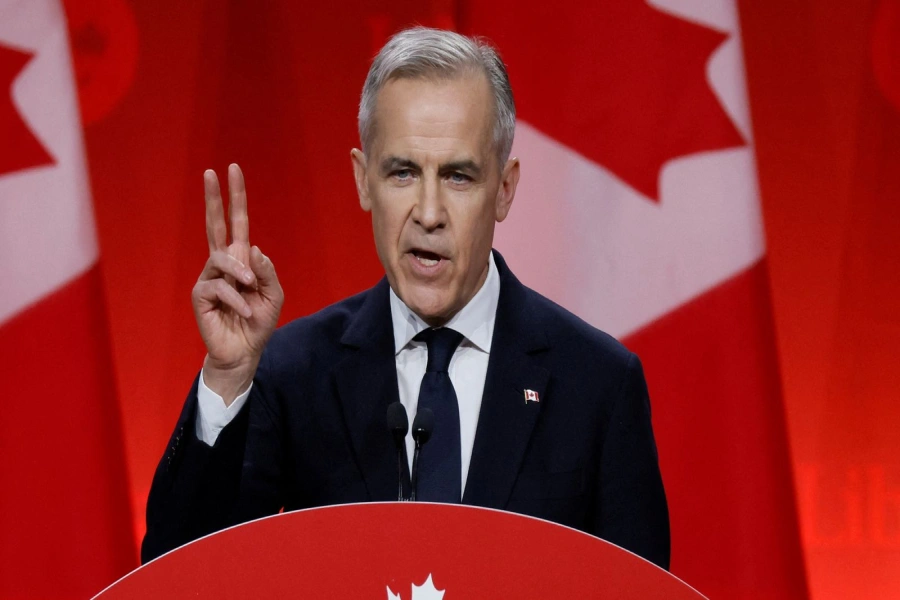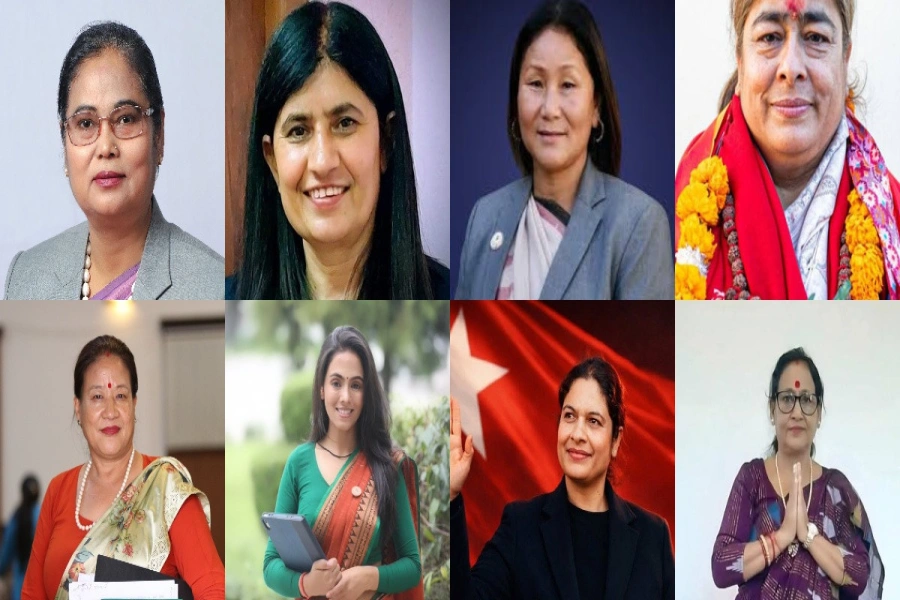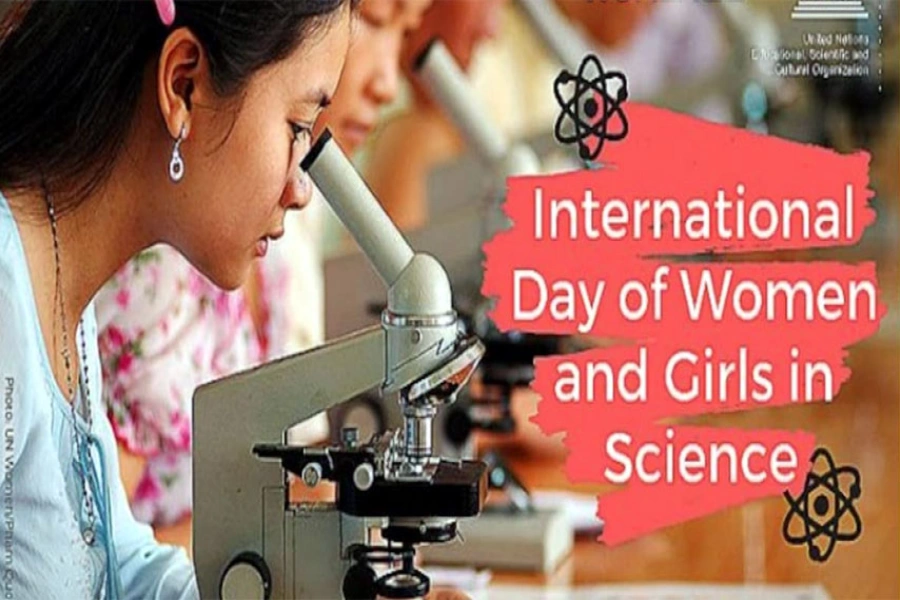The mainstream in both these countries, one a colonial power and another its freed colony, is a monochrome where “some are born white, others achieve whiteness, still others have whiteness thrust upon them” to be accepted as full citizens. [break]
Americans admire that Britain has succeeded in retaining its distinctiveness despite shouldering the burdens of Empire for centuries while the British respect the ability of United States of America to melt metals of all immigrant strains into an alloy with clearly identifiable characteristics of Oneness.
In the wake of an unjustified invasion of Iraq, relationship between Americans and French soured for a while as “freedom fries” guzzling macho militarists ridiculed the rationality of “cheese-eating wimps” of the Continent.
Their appreciation for each other has since resumed as mutual strategic interests in the Maghreb countries of Morocco, Algeria, Tunisia, Libya, and Mauritania begin to coalesce.
It has long been considered polite for visiting American dignitaries in Paris to repeat some variation of a sentence from the 1895 play by Henri de Bornier, a French poet and dramatist, “Everyone has two countries: his or her own and France.” President John F. Kennedy used the quote on his French trip, and so did Barack Obama decades later.
France fascinates conservatives because it is nationalist, in the cultural sense of the term, to the very core and yet manages to maintain an internationalist outlook.
The country lures progressives for the kind of free thought it fosters among immigrants as long as their ideologies are only for export. From Ayatollah Khomeini to Pol Pot, all kinds of political extremists have used Paris as incubator of their ideas and the launching pad for revisionism and revolutions in their homelands.
The USA is to the rest of the world in the Cyber Age what Britain was in the Age of Empires and France became after the Age of Revolutions. For aspiring youngsters from urban sprawls of developing countries, being an American in thought and beliefs has become so natural that nobody even feels it necessary to verbalize the attitude.
The bodies of modern media consumers may reside anywhere on the globe, but their hearts long for things American and their minds want to emulate its ways.
As long as the Soviet Union existed as a countervailing force, Americans had to fight dirty wars, invest in ceaseless propaganda and lure the intelligentsia of poor countries with promises of Green Card for their progenies.
During Cold War decades of the Seventies and Eighties in New Delhi, senior government officials taking leave to be with their grandchildren in the USA became so commonplace that ICS and IAS, abbreviations that mean Indian Civil Service and Indian Administrative Service respectively came to be jocularly interpreted as Indian Cook Service and Indian Ayah Service.
Indeed, even in Nepal, there are not many former secretary-level employees of the government with none of their offspring in the country of bourgeoisie dreams.
Artistes, litterateurs, politicos and sportspersons were late beginners, but they too are fast moving up on the list of settlers in the New World.
From Afghanistan to Libya, the hyper power continues to wage ceaseless wars to maintain its near monopoly over energy resources, but it no longer needs to feed the greed of urban middleclass in client states with work permits.
Pax Americana does not have to be enforced by the greatest economic and military might the world has ever known. Bill Gates, Steve Jobs and Mark Zuckerberg are doing quite well with the active support of aspiring Americans on all continents in propagating values that give continuity to hyper-power hegemony.
It may not have been by design, but President Barack Hussein Obama II—that is the name that figures on the Birth Certificate released by the White House in the wake of “birther” controversy early this year—is the best thing to have happened to the image of the USA.
It took supposedly the freest country of the world nearly 145 years since Abraham Lincoln’s soul-stirring Gettysburg Address (…that this nation, under God, shall have a new birth of freedom—and that government of the people, by the people, for the people, shall not perish from the earth) to elect a half-African President.
By comparison, Indians have had a Dalit and two Muslim Presidents and can boast of a Pakistan-born de jure Prime Minister and an Italy-born de facto Super Prime Minister.
Nepal has not done too bad, either; it elected two Madheshis from different political backgrounds as the first President and the first Vice-President of the republic. Yet, Britain – the epitome of hierarchical society – France –a unitary country in letter and spirit – and the USA –propagator of the nation under God formulation – remain touchstones of measuring the strength of national unity, quality of freedom and essence of democracy in other countries.
There is a canon in Sanskrit that holds that the right path is one which is trodden by giants: Mahajano jen gata sa pathah.
Manufacture of uniformity
The British model of creating and defending an empire through a combination of deception and brute force inspired Prithvi Narayan Shah of Gorkha principality to produce that marvelous manual of military rule: Divyopadesh—the Glorious Counsel, or even Divine Counsel.
After his excursions in France in mid-nineteenth century, Jang Bahadur Kunwar added Napoleonic dimensions to the imagination of Gorkhali identity. Chandra Shamsher got modernist advice from Japanese monk in cloak, Ekai Kawaguchi, to manufacture uniformity for the Rana realm.
Israelis and Pakistanis—client states of USA—offered melting pot models of creating homogeneous national identity to King Mahendra in the 1960s. The idea of Nepalipan has thus not evolved in isolation. It has borrowed different elements from various countries to produce a mixture of xenophobia and jingoism that hinders the emergence of an inclusive identity and benign nationality.
Like any imperial society, Nepal too has at least three distinct population groups that claim a monopoly over patriotism. At the top of the hierarchy are “old families” who helped the Shahs and Ranas to consolidate their hold over the diverse land. Prithvi identifies them by their family names in Divyopadesh.
The circle has since expanded somewhat, but only to include their close relatives. Like fruits of different hands clinging together to a cluster of a banana plant, patriarchs of these clans are diverse only in their sameness.
They hold the ultimate power: The authority to define boundaries of nationality. Their source of power may appear to be knowledge, but it is actually tradition that confers legitimacy upon their interpretations. They are the Banana People of Nepal, the neo-elite masquerading as nobles of society.
In the Hindu Varna systems, they are the Brahmins of societal core endowed with the power to purify the periphery with touch and sanctify outliers with their pious words.
Second on the ladder are members of Peach Communities—warrior families of the hills and mountains that helped the Shahs build a kingdom and assisted the Ranas earn a fortune through mercenary services to imperial masters.
Owners of Nepalinpan generously include them in the outer circle of belongingness as one of “us.” They are the Kshtriyas by profession, even if not by birth—personification of loyalty, grit and determination—and are considered vital for the existence of traditional Gorkhali identity. If power flows from the barrel of a gun, the rest must learn to respect those who hold it.
Achievers from select Newar families and notable tribes and ethnicities of the hills and mountains began to be assimilated on a substantial scale into the “national” mainstream from the 1960s.
A devious dictator, Mahendra saw the merit of taking native collaborators to deepen his control over the entire land.
Most of these passengers on the Panchayat gravy train were upstart members of the Apple Society—allusions to a certain mercantilist city called Big Apple intentional—who had learnt to appreciate that an apple a day kept the doctor away.
They became the Vaishyas of the new order: The householders that sustain society with their inventiveness, persistence and hard work.
They fall within the ambit of “We, the people of Nepal” but don’t quite make it into the charmed circle of “One of us.” Money and machinations are their main sources of power. This community now matters more than it ever did, as the country acquires all attributes of plutocracy with alacrity.
Lowest on the rung of national identity are the Mango People—the aam manis in the streets—mostly from the Madhesh plains but a few also from downtrodden communities of the hills and mountains.
They fall outside the ambit of “We, the people” and can never even aspire to break into the closed circle of “Us” that controls the destiny of the nation. Anecdotes are not evidences, but it is not unusual to hear being spoken: “So now we have to learn nationalism from “them”!”
Then there are all those commoners at the bottom, too low to be called even people, let alone referred as fellow citizens.
They are the populaces, the lemons of society whose destiny it is to be squeezed, dipped into lentil soup for ease, and squeezed again and again until the last drop of juice is extracted out of them before being dumped into the dustbins of social system.
Vilification of the other
Circulation of elite and equality of opportunity are brilliant ideas, but how does one turn a lemon into a mango or an apple into a banana? That is a question that has been vexing me since I began to receive the torrent of hate mails questioning my identity.
Apparently, the fa-bo (Facebook bombast) crowd took it as an affront that a mere member of the Mango community could question the intentions of Apples and Bananas.
Their wounded incredulity went viral over what are mischievously called social networks as one mail after another became increasingly virulent.
In retrospect, it was not such a bad bargain, after all. I got an advanced lesson in the idea of Nepali nationalism, for education, as Robert Frost observed so accurately, “…is the ability to listen to almost anything without losing your temper or your self-confidence.
” Now I can better understand what Madheshi lawmakers feel and empathize with their antics that make little sense to the learned, the arrogant and the polite sections of Kathmandu high society.
Perhaps it is by insulting each other first that we learn the value of appreciating differences within an apparent sameness. When the season changes, bananas begin to rot, peaches fall off their branches, and raw mangoes start to ripen. But these fruits do not change their characteristics.
Equality is desirable, equitability is possible, but uniformity is a mirage that can drive societies seeking it into collective insanity.
Season of mangoes







































